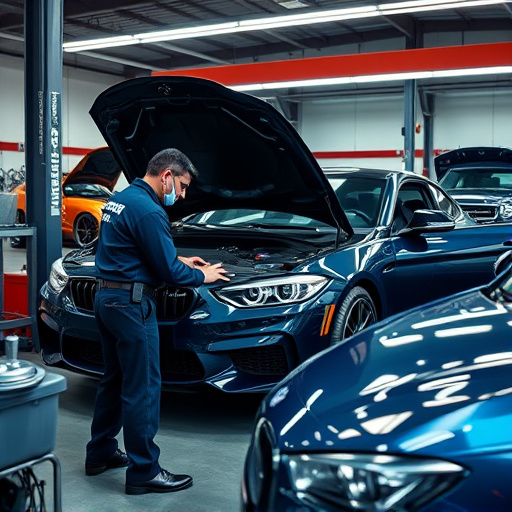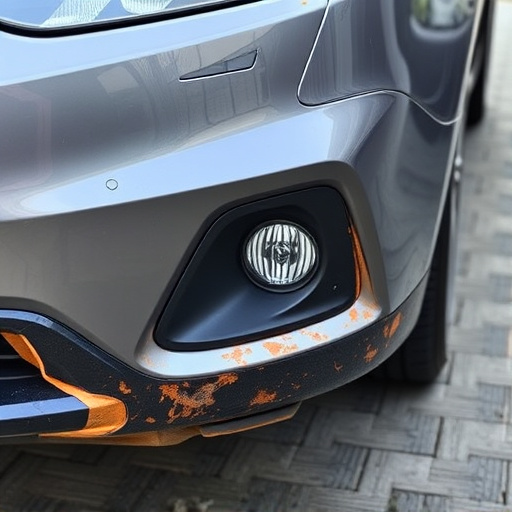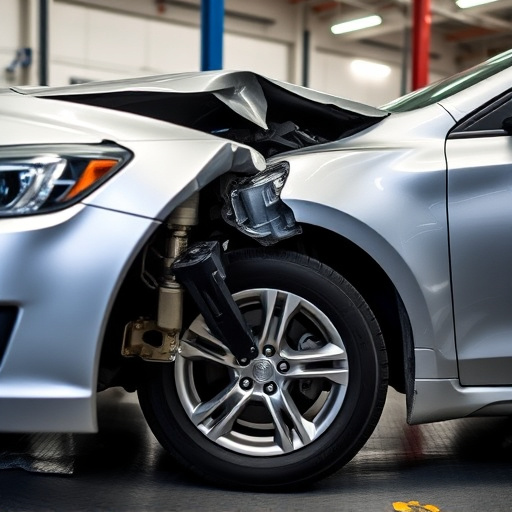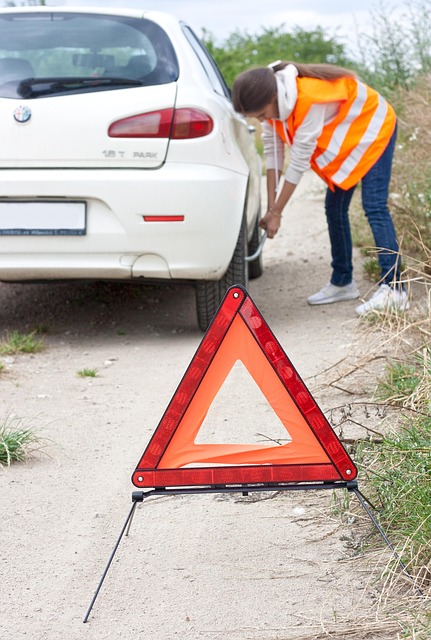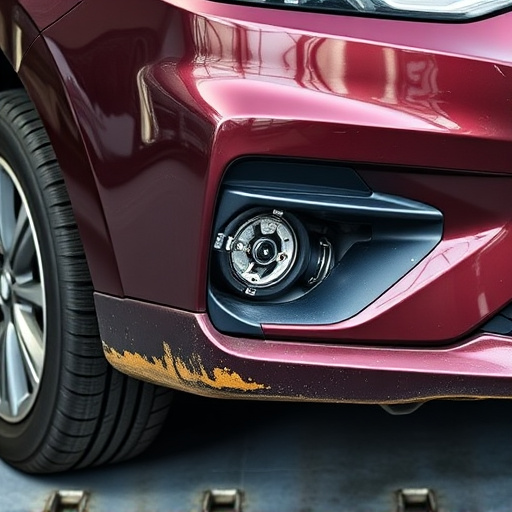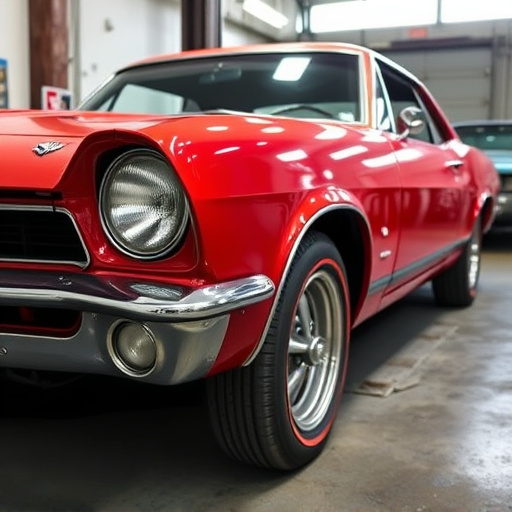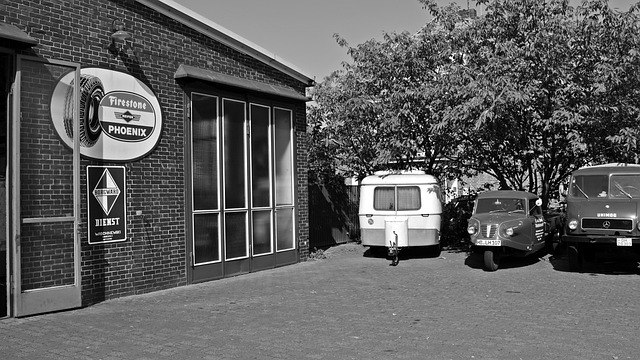The anti-corrosion materials market is booming due to sustainability concerns and stricter environmental laws. Coating solutions offer robust protection against corrosion in diverse conditions, enhancing aesthetics in the automotive sector with durable, moisture-repellent finishes. These eco-friendly alternatives reduce toxic chemical use, benefiting consumers and industries for longer-lasting vehicles and a greener future. The automotive industry embraces these materials for collision repair, aligning with environmental regulations and driving innovation in advanced anti-corrosion technology.
In today’s environmentally conscious world, finding robust and eco-friendly anti-corrosion materials is paramount for various industries. This article explores cutting-edge coating technologies that offer superior protection while adhering to stringent environmental regulations. We delve into the latest advancements in materials science, focusing on innovative, green alternatives. By examining these options, we aim to guide professionals in making informed choices to prevent corrosion, ensuring both product longevity and ecological sustainability.
- Exploring Anti-Corrosion Coating Technologies
- Environmentally Friendly Materials: A Deep Dive
- Regulatory Compliance in Anti-Corrosion Solutions
Exploring Anti-Corrosion Coating Technologies
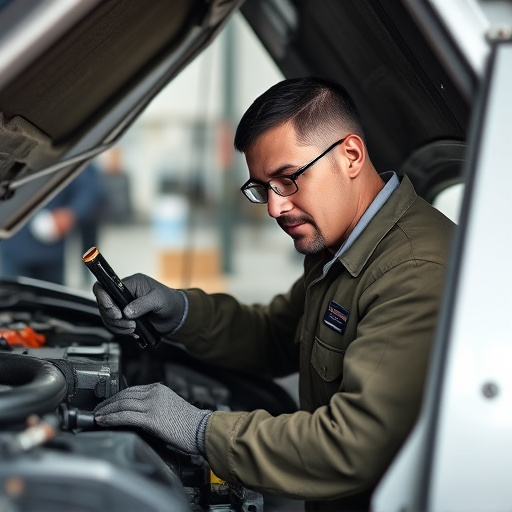
The world of anti-corrosion materials has seen a surge in innovation, particularly with the increasing focus on sustainability and environmental regulations. Among the various technologies, coating solutions have emerged as a prominent defense against corrosion, offering an effective barrier for protection. These advanced coatings are designed to withstand harsh conditions, from industrial exposure to fluctuating weather patterns, ensuring the longevity of structures such as car bodywork.
In the realm of auto repair services and collision repair, choosing the right anti-corrosion coating is pivotal. Modern coatings not only protect but also enhance the aesthetic appeal of vehicles, providing a durable finish that repels moisture and chemical reactions. As environmental regulations continue to tighten, these innovative materials play a crucial role in reducing the reliance on toxic chemicals traditionally used for corrosion prevention, making them an eco-friendly option for both consumers and industries alike.
Environmentally Friendly Materials: A Deep Dive
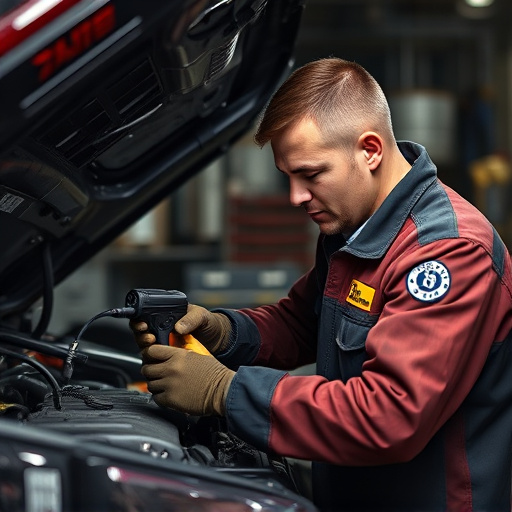
In the quest for sustainable solutions, the automotive industry is increasingly turning to environmentally friendly anti-corrosion materials. These advanced substances play a pivotal role in reducing the ecological footprint associated with traditional metal protection methods. By embracing innovative compositions and formulations, manufacturers are creating products that not only excel in preventing corrosion but also align with stringent environmental regulations.
This shift towards eco-conscious options is particularly notable in the realm of car collision repair and frame straightening processes. Anti-corrosion materials used in these scenarios must possess exceptional durability and resistance to rust, especially after exposure to moisture or extreme weather conditions. Moreover, they should be designed to minimize toxic emissions and waste generation, making them a preferable choice for professionals engaged in collision damage repair.
Regulatory Compliance in Anti-Corrosion Solutions
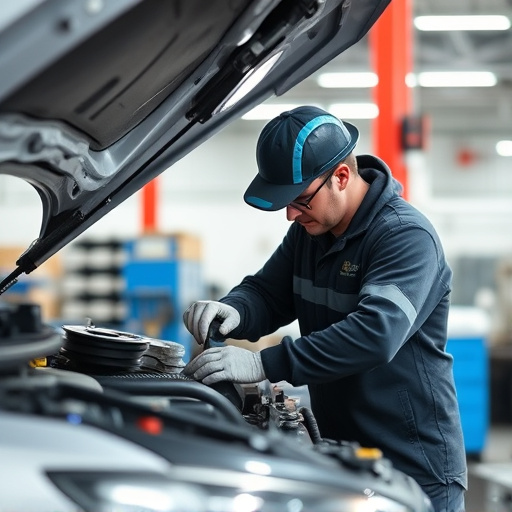
In the realm of anti-corrosion materials, regulatory compliance is paramount to ensure environmental protection and sustainable practices. As regulations continue to tighten, especially in industries like automotive body work and vehicle body repair, manufacturers must adhere to stringent standards when developing and implementing anti-corrosion solutions. This includes using eco-friendly compounds that minimize harmful emissions during production and disposal processes.
For car repair shops and the broader automotive sector, selecting anti-corrosion materials that meet these regulations is crucial. By prioritizing environmentally friendly options, businesses can contribute to a greener landscape while maintaining the integrity of their work. Regulatory bodies worldwide are pushing for innovative solutions in anti-corrosion technology, driving the market towards advanced materials that offer both durability and ecological responsibility in applications ranging from automotive body work to various industrial sectors.
Anti-corrosion materials play a pivotal role in safeguarding infrastructure and equipment, especially with growing environmental concerns. By exploring innovative coating technologies and adopting eco-friendly solutions, manufacturers can meet stringent regulations while ensuring long-lasting protection. This comprehensive approach not only preserves the integrity of structures but also contributes to a more sustainable future, where performance and environmental responsibility go hand in hand.



